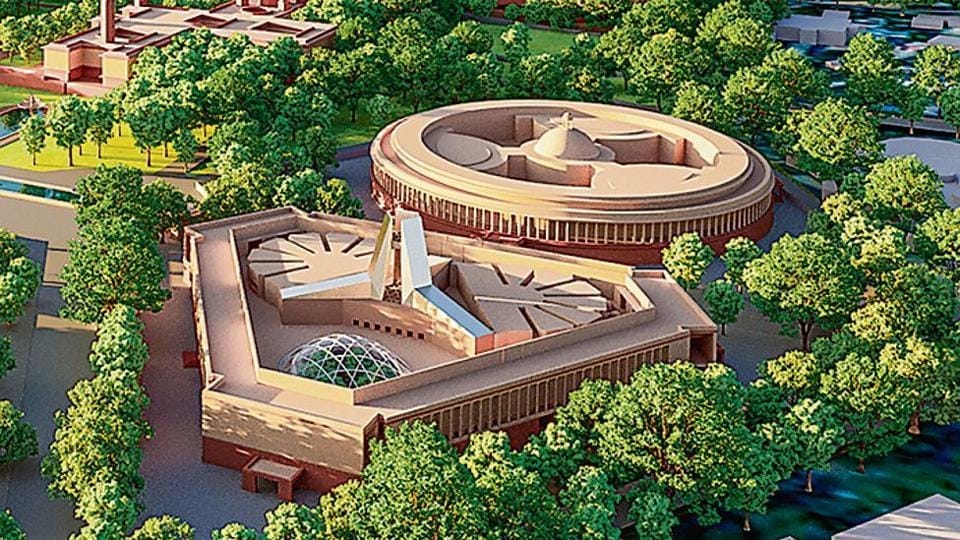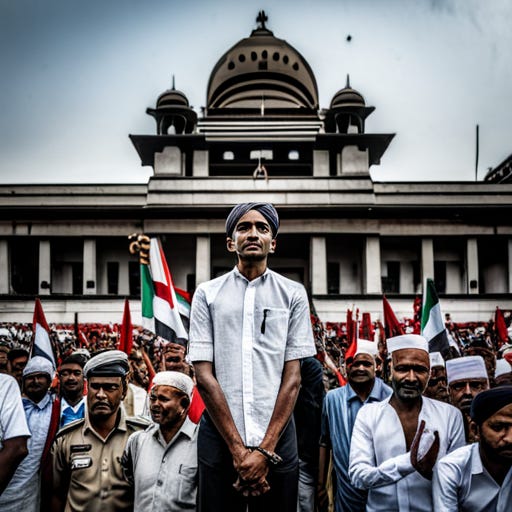"From Voter to Citizen": Unleashing the Power of Active Participation
Beyond the Ballot: Nurturing a Culture of Active Citizenship for a Stronger and Inclusive Indian Democracy.
Introduction: India, the world's largest democracy with a population of over 1.42 billion people, boasts of a politically aware and well-informed citizenry. In this era of information, where the internet plays a pivotal role in disseminating knowledge, citizens are increasingly engaged in various local and global issues. This hold good even though a significant fraction of our population is still not literate or educated in the formal sense of the word. However, the underlying idea is to move beyond the narrow focus on polls and elections and embrace a broader sense of citizenship. This article aims to catalyze, if not inspire, individuals to become active citizens and participate in all aspects of democratic governance, going beyond the mere act of casting your ballot.
Understanding the Distinction: Voter vs. Citizen (नागरिक बानो, न केवल वोटर): While casting a vote is undoubtedly a crucial aspect of democratic participation, being a citizen entails a deeper and more profound commitment and involvement. A voter (elector is the legal word) is primarily associated with elections and the electoral process, where they exercise their right to choose their representatives. On the other hand, a citizen is someone who actively engages in the functioning of the democratic machinery at every level of governance. In my opinion, it is a higher honour to be a "citizen" in a republic like India than to be a mere "subject" in a monarchy, even a constitutional one.
However, many individuals often question and express their concerns, saying, "I am a private citizen, struggling to make a living. My days are dedicated to my family and my professional commitments. I do not hold any public office or possess executive or statutory powers. How can I actively participate in the day-to-day democratic processes of my country, my state, or even my local community?"
We try and answer such question, rather dispel such doubts.
"One of the penalties for refusing to participate in politics is that you end up being governed by your inferiors." (Plato, The Republic)
Expanding the Role of Citizenship: As a citizen, your responsibility extends beyond the mere act of voting. Here are some ways you can be more actively involved in shaping the democratic process:
Express Your Opinions: Utilize social media platforms like Twitter, Facebook, YouTube, or LinkedIn to voice your opinions on matters that are important to you. Exercise your fundamental right to freedom of speech and expression. What good is this valuable right, if you choose not to exercise it? Engage in constructive debates and discussions, ensuring your voice is heard. However, avoid re-circulating bits that may be “fake news”, especially on WhatsApp, without due verification.
Engage with Your Representatives: Reach out to your Members of Legislative Assembly (MLAs) and Members of Parliament (MPs) on pertinent issues. Communicate with your Mayor, Councillor, or the head of your local Panchayati Raj Institution if you live in a municipal town or village. Express your concerns and suggestions through letters, emails, or personal meetings. Share your letters publicly on social media, tagging the relevant officials, to encourage transparency and accountability."
“A vote is like a rifle; its usefulness depends upon the character of the user." - Theodore Roosevelt
Attend Townhall Meetings and Discussions: Participate in townhall gatherings and meetings organized by political parties, pressure groups, NGOs, and civil society organizations. Even if you do not intend to speak, listening to diverse perspectives can broaden your understanding of various issues. Additionally, consider hosting your own Twitter Space to share your expertise or knowledge on specific events and topics.
Utilize the Right to Information (RTI) Act1: Harness the power of the RTI Act to hold public institutions and servants accountable and ensure transparency. File intelligent and well-targeted RTI applications to gather information. Share the information you obtain or expose cases where access to information is denied. By doing so, you empower others and promote a culture of transparency.
Write Letters to Editors: Make use of both English and vernacular newspapers by sending letters to the editors. With the help of translation software, you can express your views on topical and burning issues in your preferred language. Email your letters and highlight crucial concerns, ensuring they reach a wider audience.
Start Your Own Blog: Build your audience and following by starting your own blog. Platforms like Substack and Medium offer a space to express your thoughts, ideas, and perspectives. Regularly publish your content and consider creating a newsletter to keep your readers informed. By sharing your insights, you contribute to public discourse and encourage dialogue.
Participate in Debates and Discussions: If invited to TV or YouTube channel debates, accept the opportunity to express your viewpoints. Be polite and respectful during discussions, but if you encounter biased or unfair treatment, call it out. However, refrain from engaging with trolls and negative individuals. One of my favourite quotes is : “We can disagree without being disagreeable” Building consensus, although not an easy process, should be the preferable goal.
The Way Forward: Being an active citizen extends far beyond the act of casting your ballot. While voting is a crucial aspect of democratic participation, embracing the role of a citizen entails a broader commitment and involvement in the democratic process. India's democracy, with its vast population and diverse perspectives, thrives when its citizens actively engage in public affairs. By expressing your opinions, engaging with representatives, attending townhall meetings, utilizing the RTI Act, writing to editors, starting your own blog, and participating in debates and discussions, you contribute to the strength of India's democracy.
"In democracy, it's your vote that counts; in feudalism, it's your count that votes." - Mogens Jallberg
Towards an involved citizen: At cost of repetition, being a “citizen” in a democratic republic like India is a higher honour than being a mere “subject” in a monarchy, even if it happens to be a constitutional monarchy. Your active participation helps shape the future of the Nation, ensuring that elected representatives and policymakers remain responsive to the needs and aspirations of the citizens. As you embark on this journey of active citizenship, remember to be polite, engage in healthy discussions, and build consensus while addressing disagreements. Being rude, cantankerous, playing the victim card, raising unnecessary controversies does not always help your cause. By engaging in a responsible manner, we strengthen our democracy and create a society where informed and enlightened citizens play a crucial role in the governance of the nation. So, don't settle for being just a voter—embrace the full essence of citizenship and actively contribute to the progress of our great nation.(नागरिक बानो, न केवल वोटर)
So, what is the one thing you are going to do today, as an involved citizen?
PS: "There is no austerity equal to a balanced mind, and there is no happiness equal to contentment; there is no disease like covetousness, and no virtue like mercy." - Chanakya
"Subjects have the duty to render to their sovereign not only tribute and service, but also counsel and advice." - William Blackstone
5 Key provisions of RTI that every Citizen must know
Right to Information Act, 2005 The Right to Information Act, 2005 was notified on 21–6–2005 and become fully operational on the expiry of 20 days of its announcement. This is a past breaking Legislation which, for the first time gave a citizens of the country a statutory right to obtain information from Public Authorities. So much so, that in various circ…






Sir I agree with you fully but today one experiences threats and abuse when you express truth.I have seen frowns on the faces of politicians,bureaucrats and criminals.Many accomplished friends advice restraint.What should one do ?